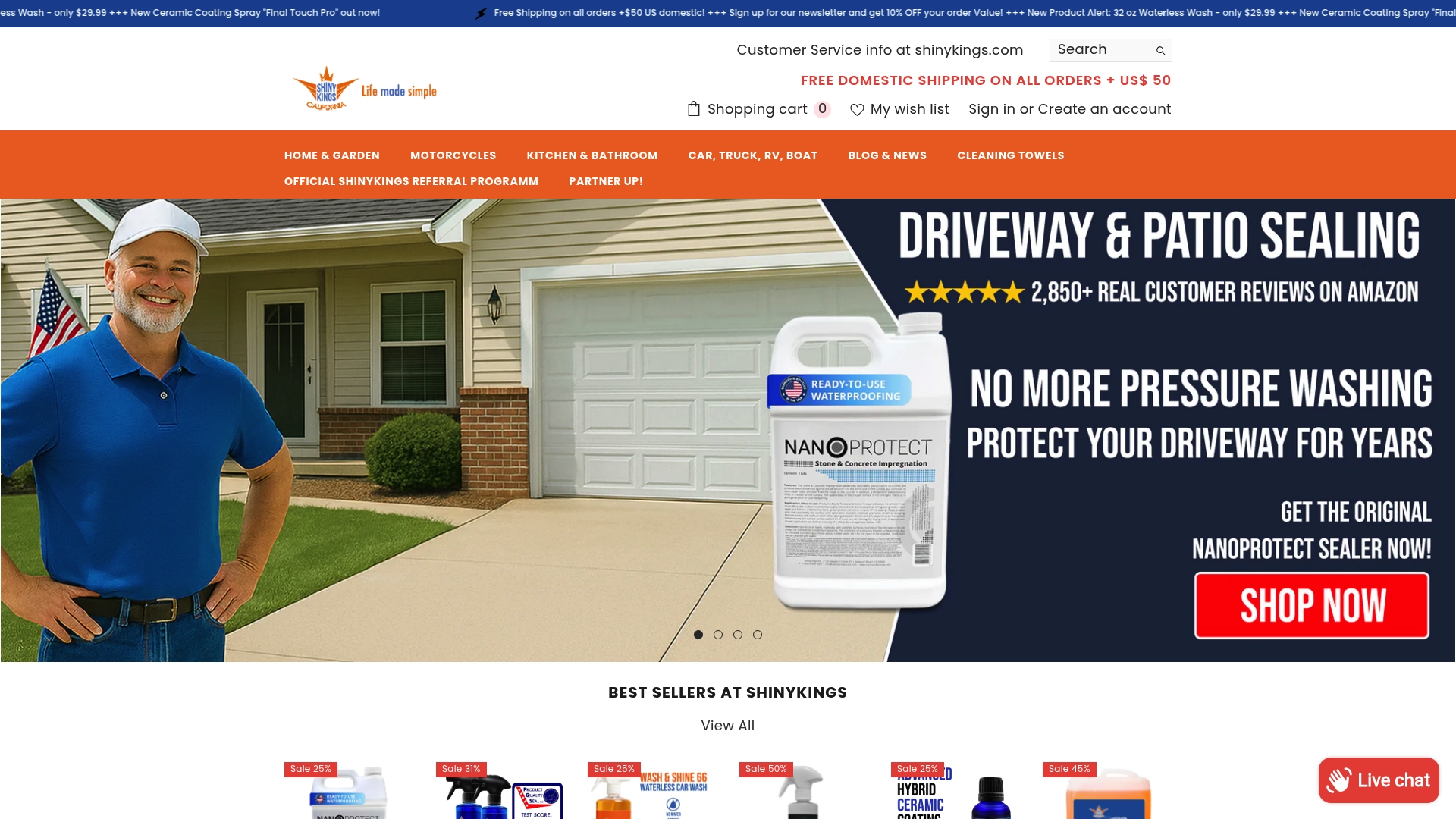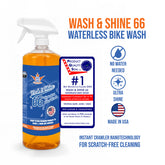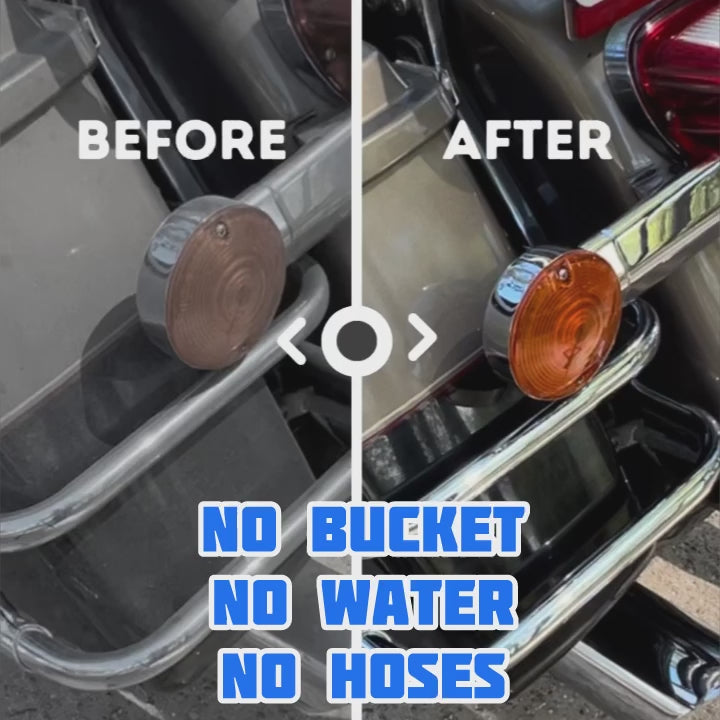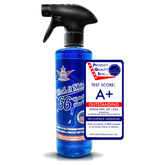Understanding Sealants for Stone vs Concrete
Sealing stone, concrete, and other porous surfaces is about far more than just appearances. Millions of homeowners use sealants every year, and high-quality sealants can extend the life of a concrete driveway by up to 30 percent. Most people assume this is just another protective coating or a way to keep things looking nice. Actually, sealants work at a microscopic level to create invisible shields that save you money, preserve your property, and stop damage before it starts.
Table of Contents
- What Are Sealants And Why They Matter
- Differences Between Sealants For Stone And Concrete
- How Sealants Protect Surfaces And Extend Lifespan
- Choosing The Right Sealant For Your Needs
- Real-World Applications Of Sealants In Homes
Quick Summary
| Takeaway | Explanation |
|---|---|
| Sealants prevent surface damage | They act as a barrier against water, oil, dirt, and stains, extending the life of surfaces. |
| Choose sealants based on surface type | Different materials require tailored sealants for optimal protection; stone and concrete have distinct needs. |
| Proper sealing reduces maintenance costs | High-quality sealants minimize repairs and replacements, saving homeowners money over time. |
| Sealants maintain aesthetic appearance | They help preserve the visual appeal of surfaces by preventing stains and wear from environmental exposure. |
| Effective application enhances protection | Correct application fills surface pores, ensuring long-lasting defense against moisture and damage. |
What are Sealants and Why They Matter
Sealants are specialized protective coatings designed to shield surfaces like stone, concrete, and other porous materials from environmental damage, moisture penetration, and potential degradation. Learn more about the fundamentals of sealants and understand why they play a crucial role in surface maintenance and longevity.
The Fundamental Purpose of Sealants
At their core, sealants serve as a critical barrier that prevents water, oil, dirt, and other contaminants from penetrating and damaging surfaces. Whether you are protecting a concrete driveway, natural stone patio, or exterior walls, sealants create an invisible protective layer that significantly extends the life of your surfaces.
Key characteristics of effective sealants include:
- Preventing water absorption and moisture damage
- Blocking stain penetration from oils, dirt, and organic materials
- Reducing surface degradation from UV radiation
- Enhancing the aesthetic appearance of treated surfaces
How Sealants Work to Protect Surfaces
Sealants operate through microscopic chemistry, creating a hydrophobic or oleophobic barrier that repels liquids and prevents them from being absorbed into porous materials. When applied correctly, these protective coatings fill tiny surface pores and capillaries, essentially creating an invisible shield that maintains the material’s breathability while dramatically reducing its vulnerability to environmental stressors.
The science behind sealants involves creating a molecular barrier that either chemically bonds with the surface or forms a protective layer on top. This means that instead of just sitting on the surface, high-quality sealants actually integrate with the material, providing long-lasting protection that goes beyond simple surface coating.
By understanding the critical role sealants play in surface protection, homeowners and property managers can make informed decisions about preserving and maintaining their stone, concrete, and other porous surfaces. The right sealant not only protects your investment but also maintains the aesthetic appeal of your surfaces for years to come.
Differences Between Sealants for Stone and Concrete
While stone and concrete sealants share the fundamental goal of surface protection, they differ significantly in composition, application, and performance characteristics. Learn about our recommended concrete sealers to understand these nuanced differences.
Composition and Material Compatibility
Stone and concrete sealants are formulated with distinct chemical compositions tailored to the unique properties of each surface.
Natural stone surfaces like marble, granite, or limestone require penetrating sealants that work with the stone’s inherent porosity, while concrete demands more robust and sometimes thicker protective layers.
Key differences in sealant composition include:
- Stone sealants often use silane or siloxane-based chemistries that penetrate deeply
- Concrete sealants frequently incorporate acrylic or polyurethane compounds for surface coverage
- Mineral-based stone surfaces need breathable sealants that allow moisture transmission
- Concrete surfaces can tolerate more robust, film-forming sealant technologies
Performance and Durability Variations
The performance expectations for stone and concrete sealants vary dramatically based on environmental exposure and surface characteristics. Stone sealants must preserve the natural appearance and texture of the material, whereas concrete sealants often prioritize durability and resistance to mechanical wear.
Concrete surfaces, particularly in high-traffic areas like driveways and walkways, require sealants with superior abrasion resistance and the ability to withstand significant mechanical stress. Stone sealants, conversely, focus more on maintaining the aesthetic qualities while providing protection against moisture and potential staining.
Understanding these differences ensures that property owners select the most appropriate sealant for their specific surface, ultimately protecting their investment and maintaining the visual appeal of their stone or concrete surfaces.
Below is a comparison table summarizing the primary differences between stone sealants and concrete sealants in terms of composition, compatibility, and performance.
| Feature | Stone Sealants | Concrete Sealants |
|---|---|---|
| Common Chemical Base | Silane/Siloxane-based (penetrating) | Acrylic/Polyurethane (film-forming) |
| Intended Surface Porosity | Designed for highly porous mineral-based stones | Formulated for moderately porous concrete |
| Breathability | Maintains breathability for moisture release | Can be less breathable, forms a barrier |
| Aesthetic Preservation | Focuses on preserving natural look and texture | Can enhance or alter appearance |
| Durability Against Wear | Good against stains/moisture, less for abrasion | Prioritizes abrasion/mechanical resistance |
| Application Focus | Deep penetration | Surface coverage and layer formation |
| Typical Use Cases | Marble, granite, limestone, outdoor masonry | Driveways, patios, walkways |
![]() The right sealant not only preserves the material but also enhances its long-term performance and aesthetic qualities.
The right sealant not only preserves the material but also enhances its long-term performance and aesthetic qualities.
How Sealants Protect Surfaces and Extend Lifespan
Sealants are critical guardians that provide comprehensive protection against environmental degradation, significantly extending the functional and aesthetic lifespan of stone and concrete surfaces. Explore polymer sealant technologies to understand their advanced protective mechanisms.
Mechanisms of Surface Protection
The protective power of sealants stems from their ability to create a molecular barrier that prevents destructive elements from penetrating porous surfaces. By filling microscopic pores and capillaries, sealants block moisture, chemicals, and contaminants that could cause progressive damage.
Key protective mechanisms include:
- Creating a hydrophobic layer that repels water and liquid substances
- Blocking ultraviolet radiation that can cause surface discoloration
- Preventing chemical reactions that lead to material breakdown
- Reducing surface absorption of oils, dirt, and organic materials
Long-Term Surface Preservation
Proper sealing transforms surface maintenance by dramatically reducing wear and deterioration. For concrete surfaces like driveways and patios, sealants prevent water infiltration that can cause freeze-thaw cycles, which lead to cracking and structural weakening. Natural stone surfaces benefit from sealants that maintain their inherent beauty while protecting against staining and environmental erosion.
The economic benefits of using high-quality sealants extend far beyond initial application. By creating a robust protective layer, sealants minimize the need for frequent repairs, resurfacing, and replacement. Homeowners who invest in professional-grade sealants can expect significantly reduced maintenance costs and prolonged surface integrity, ultimately preserving the aesthetic and functional value of their property.
Understanding and implementing proper surface sealing is not just a maintenance task but a strategic approach to long-term property care and preservation.
Choosing the Right Sealant for Your Needs
Selecting the appropriate sealant is a critical decision that directly impacts the long-term protection and appearance of your stone or concrete surfaces. Discover our comprehensive guide to concrete sealers to make an informed choice that meets your specific requirements.
Assessing Surface-Specific Requirements
Every surface has unique characteristics that demand tailored protection. Concrete driveways, stone patios, and exterior walls each present distinct challenges that require careful consideration when choosing a sealant. The material composition, environmental exposure, and intended use of the surface are fundamental factors in determining the most suitable sealant.
Key considerations for sealant selection include:
- Surface porosity and material composition
- Expected environmental stress and exposure
- Desired aesthetic outcome and finish
- Frequency of use and potential mechanical wear
- Budget and long-term maintenance expectations
Performance Criteria and Application Factors
Beyond surface-specific needs, homeowners must evaluate sealant performance characteristics that align with their protection goals. Penetrating sealants work best for natural stone surfaces, offering protection while maintaining the material’s natural appearance. Film-forming sealants provide superior coverage for concrete surfaces, creating a robust protective layer that withstands heavy traffic and environmental challenges.
Critical performance factors to examine include water repellency, stain resistance, UV protection, and the sealant’s ability to prevent moisture penetration. Professional-grade sealants offer advanced formulations that provide comprehensive protection, reducing maintenance requirements and extending the surface’s functional lifespan.
Ultimately, choosing the right sealant is an investment in your property’s longevity and aesthetic appeal.
The table below outlines key factors to consider and performance criteria when choosing a sealant for different surfaces in your home.
| Selection Factor | Impact on Sealant Choice | Application Example |
|---|---|---|
| Surface Porosity & Composition | Determines penetration depth and compatibility | Natural stone needs deep-penetrating |
| Environmental Exposure | Affects need for UV and moisture resistance | Outdoor driveways under harsh weather |
| Desired Aesthetic Outcome | Guides finish type (glossy, matte, invisible) | Interior countertops vs. patios |
| Frequency of Use/Traffic | Influences abrasion resistance needs | High-traffic walkways need durable |
| Maintenance Expectations | Impacts long-term upkeep and budget | Low-maintenance options for busy areas |
| Sealant Performance Feature | Water repellency, stain resistance, UV protection | Professional-grade sealants |
Real-World Applications of Sealants in Homes
Sealants play a crucial role in protecting and enhancing various surfaces throughout residential properties, offering comprehensive protection against environmental damage and aesthetic degradation. Learn more about solvent-based sealer technologies to understand their practical applications.
Exterior Surface Protection
Homeowners rely on sealants to safeguard critical exterior surfaces that are constantly exposed to harsh environmental conditions. Driveways, walkways, patios, and pool decks represent high-traffic areas that demand robust protection against moisture, UV radiation, and mechanical wear. Concrete and stone surfaces in these areas are particularly vulnerable to degradation, making professional-grade sealants an essential investment.
Key exterior applications include:
- Protecting concrete driveways from oil stains and tire marks
- Preventing water damage in stone walkways
- Reducing algae and moss growth on outdoor surfaces
- Maintaining the aesthetic appearance of exterior stonework
- Extending the lifespan of decorative concrete elements
Interior Surface Maintenance
Sealants are not limited to outdoor environments but play a significant role in preserving interior surfaces as well. Natural stone countertops, tile floors, and decorative concrete features inside homes benefit tremendously from proper sealing. These surfaces are exposed to daily wear, spills, and potential staining agents that can compromise their structural integrity and visual appeal.
By applying appropriate sealants, homeowners can create an invisible protective barrier that resists moisture, prevents staining, and maintains the original beauty of their interior surfaces. The right sealant transforms vulnerable surfaces into resilient, easy-to-clean areas that retain their aesthetic quality for years.

Understanding and implementing strategic sealant applications is more than a maintenance task. It represents a proactive approach to property preservation, protecting your investment and ensuring that both exterior and interior surfaces remain functional, beautiful, and resistant to environmental challenges.
Protect Your Stone and Concrete the Right Way
Choosing the wrong sealant for your stone or concrete surfaces can lead to stress, wasted money, and damaged property. If you worry about stains, cracks, or weather-related wear highlighted in this article, you are not alone. Using the right protective product is critical for preserving both the beauty and the longevity of your valuable surfaces.
Check out our expertly formulated Stone Sealers for Outdoor Masonry & Natural Stone and our Best Concrete Sealers for Outdoor Use. Each option is designed to match the unique needs discussed in your reading, making sure you address both appearance and real long-term protection.

Take action today before future damage surprises you. Explore ShinyKings solutions to keep your stone or concrete surfaces looking fresh and protected for years to come. Now is the perfect time to make a lasting difference.
Frequently Asked Questions
What is the purpose of sealants for stone and concrete?
Sealants are protective coatings that shield stone and concrete surfaces from moisture penetration, stains, UV damage, and other environmental stressors, significantly extending their lifespan.
How do sealants differ between stone and concrete?
Sealants for stone typically use silane or siloxane-based chemistries for deep penetration, while concrete sealants often incorporate acrylic or polyurethane compounds that provide a more robust surface coverage.
How do I choose the right sealant for my surfaces?
To choose the right sealant, assess factors like surface porosity, environmental exposure, desired aesthetics, and the specific wear expected from use. For example, penetrating sealants work best for natural stone, whereas film-forming sealants are more suitable for concrete.
What benefits do sealants offer for interior versus exterior surfaces?
Sealants enhance both interior and exterior surfaces by preventing stains and moisture damage. Exterior sealants protect driveways and patios from the elements, while interior sealants help maintain the beauty and integrity of countertops and tile floors.
Recommended
- What is the best concrete Sealer to seal your driveway? Explained – shinykingsinc
- StoneprotecT Concentrate 33.8 oz for up to 1200 sqft SP5000U | Concret – shinykingsinc
- Concrete Sealer: My 2-Year Journey Protecting My Patio – shinykingsinc
- What is a Sealant? Understanding Its Importance and Use – shinykingsinc




